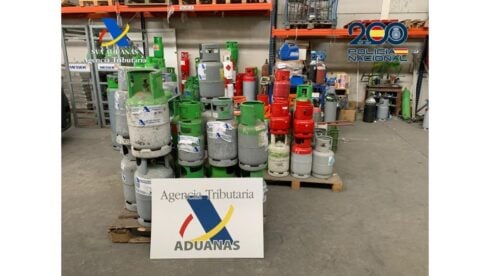FOUR alleged jihadist teenagers have been arrested on the Costa Blanca over fears they were planning to launch an attack over Christmas.
The four Moroccan minors, aged between 14 and 17, were cuffed by the Policia Nacional in Elche on December 19.
The town, in the province of Alicante, is hugely popular with British expats and tourists.
The suspects were arrested after the authorities infiltrated their messages on social media.
El Español reports that they were detained before the Christmas holidays because ‘there was a high risk they could attack.’
One of the suspected targets was the Basilica of Santa Maria, particularly as the Catholic world is entering a so-called Jubilee Year in 2025.
A Jubilee Year happens in the Catholic faith every 25 years, and will see a number of religious events across Elche and Alicante.
Following their arrests, police officers seized a drawing of a tower or dome, adding to the theory of a potential attack against the landmark, situated in the centre of Elche.

The Mystery of Elche is celebrated in the baroque temple, a religious play of medieval origin declared an Intangible Heritage of Humanity by UNESCO.
Police said it has not ruled out that the group had other plans.
The four arrested teens are being held at the Teresa de Calcuta juvenile center in region of Madrid, while the terrorism investigation continues.
It comes after the US State Department this month upgraded their threat level for traveling to Spain.
The country is now at risk level 2, out of a potential 4, with the latter being the most severe.
In an update on December 23, the government department warned tourists to ‘exercise increased caution in Spain due to terrorism and civil unrest.’
It adds: “Terrorist groups continue plotting possible attacks in Spain.
“Terrorists may attack with little or no warning, targeting tourist locations, transportation hubs, markets/shopping malls, local government facilities, hotels, clubs, restaurants, places of worship, parks, major sporting and cultural events, educational institutions, airports, and other public areas.
“Demonstrations are common. They may take place in response to political or economic issues, on politically significant holidays, and during international events.”
It advised would be tourists to ‘avoid demonstrations and crowds’ and to ‘be aware of your surroundings when traveling to tourist locations and crowded public venues.’
It said visitors should ‘follow the instructions of local authorities’ and ‘monitor local media for breaking events’ and to ‘adjust plans based on new information.’
It follows a wave of ‘anti-tourism’ protests across popular holiday destinations this year, including the Canary Islands, Mallorca, Barcelona, Malaga, Sevilla and elsewhere.
Locals are fighting back against what they call an ‘excessive model’ which uses up resources and causes widespread pollution.
Many also blame the tourism industry for the country’s housing woes, with Airbnb-style properties flooding the market, sending rental and purchasing costs soaring.
Meanwhile, in July this year, the US naval base at Rota in Cadiz province announced it had ramped up its terror alert level amid fears that it could be targeted in a jihadist attack.
The Digital Confidencial website said precautions were increased in case there is a response to the arrival of an Anti-Missile Shield at the base.
Internet chatter was intercepted by the Pentagon including encrypted messages that specifically mentioned Rota.
Click here to read more Spain News from The Olive Press.








